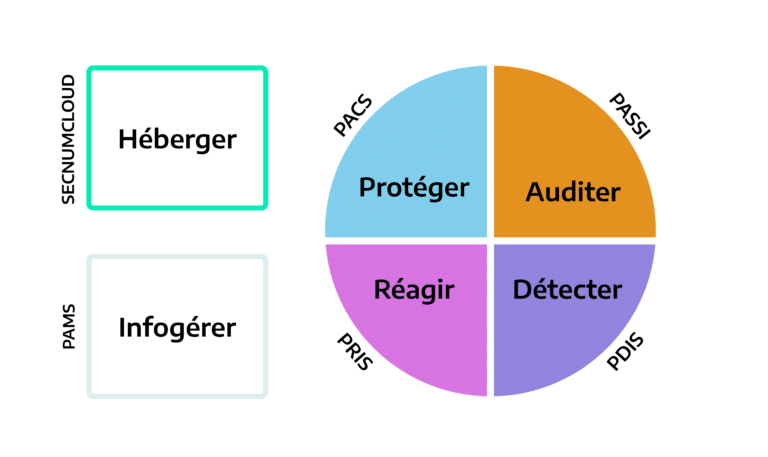In a constantly evolving world, additive manufacturing is becoming a true technological revolution. This innovative process, which allows for the creation of objects layer by layer, is redefining industry standards. With its growing use in various sectors such as aerospace, automotive, and healthcare, becoming an expert in this field is no longer an option, but a necessity for those who wish to remain competitive in the market. But how can one acquire the required skills? Which trainings should be chosen to stand out? This article will provide an overview of the essential training to consider to become a successful professional in additive manufacturing.
Additive manufacturing, also known as 3D printing, is a process of creating three-dimensional objects by adding successive layers of materials. Unlike traditional manufacturing methods that rely on subtractive processes, additive manufacturing builds an object from a digital model, allowing for complex shapes and geometries that are impossible to achieve with conventional techniques.
Table des matières
ToggleAssociated Technologies
There are several additive manufacturing technologies, including:
- FDM (Fused Deposition Modeling): This technique uses a melted thermoplastic filament deposited layer by layer to form the object. It is one of the most common methods, ideal for prototypes and parts with low mechanical requirements.
- SLA (Stereolithography): This method uses a laser to solidify a photosensitive resin, layer by layer. It is known for its precision and the finish quality of the produced parts.
- SLS (Selective Laser Sintering): In this approach, a laser fuses powder particles (plastic, metal, ceramic) to form the object, allowing for the creation of robust and durable parts.
- PolyJet: This technology uses droplets of resin that are projected layer by layer, thus offering a wide variety of materials and finishes while allowing for multi-component parts.
Practical Applications
Additive manufacturing is utilized in numerous fields, such as aerospace, automotive, medicine, and even in architecture. For example, in aerospace, it reduces the weight of parts while maintaining structural integrity, which improves the energy efficiency of aircraft. In the medical sector, personalized implants can be specifically created to meet each patient’s needs.
In summary, additive manufacturing is an innovation that is transforming design and production practices, offering new opportunities in engineering and manufacturing. Its rapid evolution and diverse applications make it an attractive specialty for those looking to train in this field.
Becoming an expert in additive manufacturing requires a unique combination of technical and creative skills. Here is an overview of the essential skills to develop in this expanding field.
Technical Skills
- Knowledge of materials: It is crucial to understand the different types of materials used in 3D printing, such as plastics, metals, and ceramics.
- Proficiency in modeling software: The ability to use computer-aided design (CAD) tools is essential to create accurate 3D models.
- 3D printing skills: Understanding the various printing processes (FDM, SLA, SLS, etc.) and their function is essential for optimizing results.
- Quality control: Knowing how to assess and analyze the quality of manufactured parts is crucial for ensuring product reliability.
- Programming skills: Automation and programming of 3D printing machines can provide a significant competitive advantage.
Creative Skills
- Innovative mindset: Being able to think outside the box to create new applications and innovative solutions with 3D printing.
- Design thinking: Taking a user-centered approach to design products that address real needs.
- Problem-solving: Ability to identify and overcome challenges that arise during the manufacturing process.
- Interdisciplinary collaboration: Working effectively with teams composed of various experts (engineers, designers, marketers) is essential for a successful project.
- Adaptability: The field of additive manufacturing is evolving rapidly, so being able to adjust to new technologies and trends is important.
By developing these skills, you will be well-equipped to advance in the dynamic world of additive manufacturing and play a key role in its future.
For those aspiring to become experts in additive manufacturing, several training options are available, ranging from university degrees to online courses.
University Programs
Universities offer various programs to deepen your knowledge. The University Diploma (DU) in Additive Manufacturing at Paris Cité is an excellent starting point for working professionals or those in career transition. This program provides a solid perspective on 3D printing technologies and materials.
Institutional Training
The professional title of senior technician in additive manufacturing is another popular path, accessible after a BTS or DUT. This training opens doors to several pathways towards other certifications, all designed to provide you with practical expertise.
Distance Learning
For those who prefer self-paced learning, online courses are available. Platforms offer training in 3D printing, suitable for both professionals and beginners, allowing you to learn the fundamentals and access more advanced knowledge anytime.
Specialist Advice
Experts in additive manufacturing recommend choosing programs that include an introduction to additive manufacturing, as well as an in-depth exploration of different technologies and materials. This will allow you to obtain a comprehensive understanding and access positions of responsibility such as additive manufacturing manager.
Specialized Training
For those wishing to specialize, training on metal additive manufacturing is also offered, along with modules on 3D printing within the context of Pôle Emploi. These programs provide valuable knowledge to stay at the forefront of the latest innovations.
In summary, choosing the right training in 3D printing is crucial for succeeding in this dynamic and expanding field. Resources are abundant, whether at a university, through online courses, or in specialized institutions.
Additive manufacturing, or 3D printing, is a rapidly growing field that offers numerous professional opportunities. To become an expert in this exciting sector, it is essential to choose the right training. Here are testimonies from several experts who have followed this path.
Testimony from Claire, Additive Manufacturing Engineer
“When I started my studies, I had a very general view of engineering. I decided to specialize in additive manufacturing after taking an introductory course in 3D printing. What really struck me was this technology’s ability to transform the manufacturing world. I enrolled in a DU in additive manufacturing, a short program that allowed me to immerse myself in the different processes and materials. I can only recommend choosing practical training and seeking internships in companies using these technologies to better understand the field.”
Testimony from Marc, Senior Technician in Additive Manufacturing
“I started with a BTS in digital systems which gave me a solid foundation. Then, I continued with a professional title of senior technician in additive manufacturing. What helped me was the blend of theory and practice, especially when I had the opportunity to work on a real 3D printing project. The skills I acquired there are directly applicable, and that makes all the difference when looking for a job.”
Testimony from Sophie, Additive Manufacturing Manager
“To become a manager of additive manufacturing, I followed a path in mechanical engineering with a specialization in materials engineering. My advice would be to choose training that offers collaborative projects. I was able to work with a team on the design of parts for aerospace, which allowed me to gain valuable knowledge and understand the sector’s requirements.”
Testimony from Antoine, 3D Printer
“My journey began with a passion for design. I opted for a BTS in product design, then I took a training course in 3D printing. By getting hands-on experience with technologies like FDM and SLA, I discovered just how creative the field can be! I firmly believe that the key is to continually innovate and stay curious, as the technologies in additive manufacturing evolve quickly.”
Having the right academic background is essential, but practical experience gained through internships and real projects is an undeniable asset in this dynamic sector.
Additive manufacturing is evolving rapidly and represents a major challenge for the future of industry. By investing in suitable training, you ensure mastering advanced technical skills essential for innovating in this field. The variety of available training programs allows technology enthusiasts to specialize, whether in 3D modeling, 3D printing technologies, or industrial processes. Each training path provides specific knowledge that will help you meet the current and future challenges of additive manufacturing. It is crucial to choose a training that corresponds not only to your career goals but also to your interests, to ensure an engaged and effective learning experience.
So, don’t wait any longer! Take the plunge and choose the training that will propel you toward a fascinating and promising career in the world of additive manufacturing.























